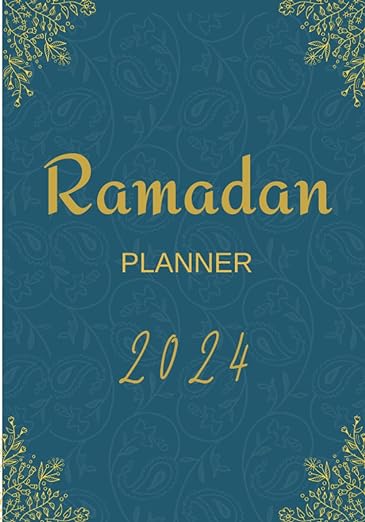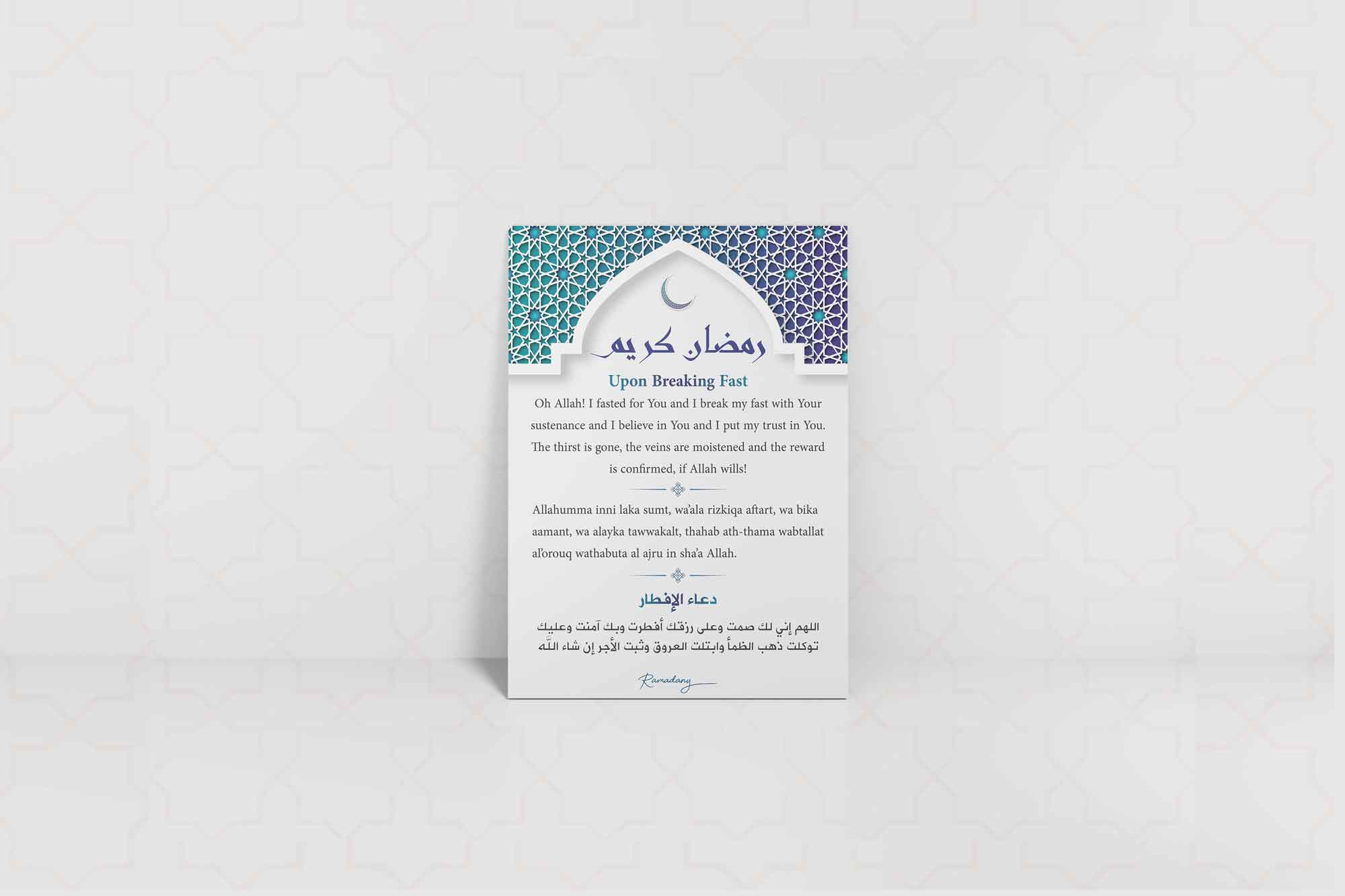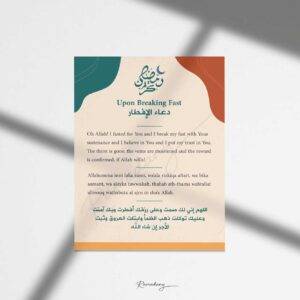Time Management and Spiritual Practices: A Guide to Making the Most of Ramadan
Ramadan is a holy month of fasting and reflection observed by millions of Muslims around the world. During this month, Muslims abstain from food, drink, and other physical needs from sunrise to sunset while also engaging in extra prayers, reciting the Quran, and acts of charity.
For many, the long days of fasting and the increased spiritual activities can present a challenge to time management, but with a few practical strategies, it’s possible to make the most of this month.
Tips for Managing Time During Ramadan
✨ Plan ahead
One of the most effective ways to manage your time during Ramadan is to plan ahead. Make a schedule for your day, including time for work, worship, rest, and family commitments. By setting clear goals and priorities, you can ensure that you use your time productively and avoid wasting time on unimportant tasks.
✨ Get enough rest
Getting enough rest during Ramadan is important to maintain your energy levels throughout the day. Aim to go to bed early and wake up early for suhoor (the pre-dawn meal) and prayer. This will help you avoid feeling sluggish and tired during the day, which can make it harder to focus on work and worship.
✨ Prioritize your worship
During Ramadan, many Muslims engage in extra prayers, recitation of the Quran, and acts of charity. While these activities are important, it’s essential to prioritize your worship and make sure that you’re not neglecting other important commitments. Find a balance that works for you, and remember that quality is more important than quantity when it comes to worship.
✨ Make time for exercise
Exercise is an important part of a healthy lifestyle, even during Ramadan. While it may be more challenging to find time to exercise during the month, it’s still important to make it a priority. Consider working out during the cooler times of the day, such as early morning or after sunset.
✨ Stay hydrated
It’s essential to stay hydrated during Ramadan, especially during the hot summer months. Make sure to drink plenty of water during suhoor and iftar (the meal eaten after sunset). You can also hydrate with fruits and vegetables, soups, and broths.
✨ Minimize distractions
During Ramadan, it’s easy to get distracted by social media, TV, and other forms of entertainment. To maximize your time, consider minimizing these distractions and focus on the tasks at hand. Turn off your phone or put it in another room while you’re working or praying, and limit your time spent on social media.
In conclusion, time management is crucial during Ramadan, and with a few practical strategies, it’s possible to make the most of this month. By planning ahead, getting enough rest, prioritizing your worship, making time for exercise, staying hydrated, and minimizing distractions, you can ensure that you use your time productively and achieve your goals. Ramadan is a time for reflection, renewal, and spiritual growth, and by managing your time effectively, you can make the most of this special month.
Incorporating Spiritual Time in Your Daily Routine
Ramadan is a time of spiritual reflection and renewal for Muslims around the world. To make the most of this holy month, it’s important to incorporate spiritual time into your daily routine. Here are some tips on how you can do this:
✨ Wake up early for suhoor
Wake up early before dawn to have your suhoor (pre-dawn meal) and engage in the pre-dawn prayers. This time is considered to be a blessed and peaceful time to engage in spiritual reflection and seek closeness to Allah.
✨ Schedule time for Quran recitation
During Ramadan, many Muslims aim to complete reading the entire Quran. To do this, it’s important to schedule time for Quran recitation. You can do this in the morning after suhoor or in the evening after iftar. Try to set a goal for yourself, such as reading a certain number of pages or completing a particular chapter each day.
✨ Attend Taraweeh prayers
Taraweeh prayers are special prayers performed after the Isha prayer during Ramadan. Many Muslims try to attend Taraweeh prayers at the mosque or watch them online. This is a great way to engage in spiritual time and connect with other members of the community.
✨ Give to charity
Giving to charity is an important aspect of Islam and is particularly emphasized during Ramadan. Schedule time to give to charity, whether it’s through donating money or volunteering your time to a local charity organization.
✨ Practice mindfulness
Mindfulness is the practice of being present at the moment and fully engaged in the task at hand. During Ramadan, try to be mindful in your daily activities, such as during prayer or while breaking your fast. This will help you to fully appreciate and engage in the spiritual aspects of the month.
✨ Engage in Dhikr
Dhikr is the remembrance of Allah through the recitation of certain phrases or prayers. Make it a habit to engage in dhikr during your daily activities, such as during your commute or while doing household chores. This will help you to stay connected to Allah throughout the day.
In conclusion, incorporating spiritual time in your days during Ramadan is essential to make the most of this holy month. By waking up early for suhoor, scheduling time for Quran recitation, attending Taraweeh prayers, giving to charity, practicing mindfulness, and engaging in Dhikr, you can make the most of this special time and draw closer to Allah.
Remember that Ramadan is a time for reflection, renewal, and spiritual growth, and by incorporating spiritual time into your daily routine, you can make the most of this special month.
A Rough Daily Schedule for Managing Time and Spiritual Activities During Ramadan
Managing your time and spiritual activities during Ramadan is crucial for making the most of this holy month. Here’s a rough daily schedule that you can use to manage your time and spiritual activities during Ramadan:
✨ Before Fajr
- Wake up before Fajr for suhoor and engage in the pre-dawn prayers (Tahajjud)
- Recite Quran and engage in Dhikr
✨ Fajr
- Pray Fajr prayer
- Take a nap or rest
✨ After Fajr:
- Recite Quran
- Perform morning routine (brushing teeth, etc.)
- Attend to any pressing work or study commitments
✨ Late morning/early afternoon:
- Attend to any work or study commitments that need to be done during the day
- Prepare iftar meal or prepare food for the family
✨ Mid-afternoon:
- Rest or take a nap to maintain energy levels
✨ Late afternoon:
- Perform Asr prayer
- Attend to any pressing work or study commitments
✨ Evening:
- Prepare for Iftar
- Break the fast with family or friends
- Perform Maghrib prayer
- Take a break to rest or engage in personal spiritual activities such as Dhikr, Quran recitation, or other acts of worship.
✨ After Isha:
- Perform Isha prayer
- Attend Taraweeh prayers at the mosque or watch online.
- Recite Quran or engage in personal spiritual activities
- Engage in acts of charity such as donating or volunteering.
✨ Before sleeping:
- Perform Witr prayer
- Recite Quran and engage in Dhikr
- Get a good night’s rest.
Remember that the schedule can vary depending on your individual situation, and it’s essential to prioritize your spiritual activities and manage your time effectively to make the most of this holy month.
By using this rough daily schedule and making adjustments as necessary, you can effectively manage your time and spiritual activities during Ramadan.
Ways to Track Your Daily Activities During Ramadan
Tracking your daily activities is an important part of effective time management during Ramadan. It can help you stay organized, monitor your progress, and make adjustments as necessary. Here are some ways you can track your daily activities during Ramadan:
✨ Use a planner or calendar
A planner or calendar can be a helpful tool for tracking your daily activities. Use it to schedule your work, worship, family commitments, and other important tasks. You can also use it to set reminders for prayer times, Quran recitations, and other spiritual activities.
✨ Keep a journal
A journal is a great way to track your progress and reflect on your spiritual growth during Ramadan. Use it to record your daily activities, including prayer times, Quran recitation, acts of charity, and other spiritual practices. You can also use it to write down your thoughts and reflections, which can help you stay focused and motivated.
✨ Use a productivity app
There are many productivity apps available that can help you track your daily activities and stay organized during Ramadan. These apps can help you set reminders, track your progress, and stay motivated.
✨ Create a daily checklist
A daily checklist can be a simple and effective way to track your daily activities. Create a list of tasks that you need to complete each day, including work, worship, and other commitments. As you complete each task, check it off the list. This can help you stay focused and motivated throughout the day.
Remember, the key to effective time management during Ramadan is to prioritize your spiritual activities and stay organized. By tracking your daily activities, you can ensure that you use your time productively and achieve your goals during this holy month. Choose the method that works best for you, and start tracking your daily activities today.
Take Action
Take action today to make the most of this holy month. Implement these time management and spiritual practices tips to help you effectively manage your time and incorporate more spiritual practices into your daily routine during Ramadan. By doing so, you can achieve your goals and draw closer to Allah. Start today and see the difference it can make in your life.
-
 Select options This product has multiple variants. The options may be chosen on the product page Quick View
Select options This product has multiple variants. The options may be chosen on the product page Quick View -
 Select options This product has multiple variants. The options may be chosen on the product page Quick View
Select options This product has multiple variants. The options may be chosen on the product page Quick View -
 Select options This product has multiple variants. The options may be chosen on the product page Quick View
Select options This product has multiple variants. The options may be chosen on the product page Quick View -
 Select options This product has multiple variants. The options may be chosen on the product page Quick View
Select options This product has multiple variants. The options may be chosen on the product page Quick View




















